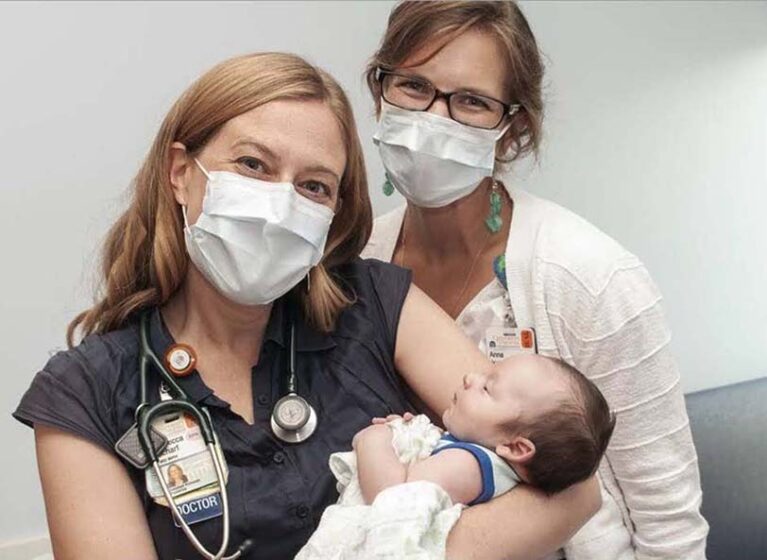
Less than a decade ago, the prognosis for infants born with spinal muscular atrophy (SMA) was bleak. The disease progressively destroys motor neurons, damaging a child’s ability to breathe, swallow, move, and speak.
“The life expectancy was fewer than 2 years for the most common type of SMA,” explains UVA Children’s director of the pediatric neuromuscular program, Rebecca Scharf, MD.
But then in 2016, the FDA approved the first treatment for SMA, Spinraza. UVA Children’s was one of the first centers in the U.S. to offer commercial Spinraza, administering its first dose in February 2017.
UVA Children’s has also expanded to become one of only a few multidisciplinary treatment programs for SMA in Virginia, caring for children from Virginia and surrounding states.
And UVA Children’s joined the fight for SMA to be added to Virginia’s mandatory newborn screenings.
The program, as Scharf explains, provides the kind of full-throttle care and advocacy that you can’t find at every hospital.
“It takes a whole team to care for these wonderful children,” she says. “We have the entire multidisciplinary team here in one building — cardiology, pulmonology, orthopedics, PT, OT, speech therapy, orthotics, dentistry, education, nursing — anything a child could need to manage their complex medical needs.”
New Life-Saving Treatments
Babies with SMA are born with a deleted or variant survival motor neuron 1 (SMN1) gene, meaning they can’t produce the amount of SMN protein necessary for normal motor neuron function. Spinraza enables the back-up SMN2 gene to produce more full-length protein that functions normally and replaces the missing protein.
It has helped babies live longer and delayed their need for breathing support.
“It’s very life-saving and children have made a lot of progress,” Scharf says.
The FDA recently approved a newer therapy for SMA called Zolgensma, an adeno-associated virus vector-based gene therapy.
Prior to FDA approval, UVA Children’s gained approval to offer it to several children on a compassionate care basis.
Stopping Devastating Symptoms Before They Start
With these new, promising treatments available, the program helped lobby to make SMA screening mandatory for infants.
In June, UVA Children’s administered Zolgensma to the first baby diagnosed with SMA in Virginia after a newborn screening.
“That’s really exciting because this medicine preserves motor neurons,” Scharf explains. “Treating a baby caught right at birth means he has the best chance of preserving as much motor function as possible.”
Because of the therapy, the newborn treated will likely have few symptoms of SMA and many fewer medical challenges.
Scharf said she’s also seeing key improvements in older children who have received treatments.
“We’re seeing incredible progress with walking, sitting, and standing,” she reports. “It’s great to see children doing so well. What a privilege to work with such amazing children and families.”